Intellectual Property Securities (IPS) have gained significant traction in modern economies, especially as businesses increasingly recognize the value of their intangible assets. This article delves into the various dimensions of IPS, exploring its definition, importance, types, legal considerations, and valuation methodologies.
Defining Intellectual Property Securities
Intellectual Property Securities encompass rights granted to creators or owners of intellectual property, allowing them to control and benefit from their innovations. These securities represent a form of collateral against which businesses can borrow or secure investments.
The Concept of Intellectual Property
Intellectual property (IP) can be defined as creations of the mind, such as inventions, literary and artistic works, designs, symbols, names, and images used in commerce. In contrast to tangible assets like real estate, IP is inherently intangible but holds substantial economic value. The recognition and protection of IP rights foster an environment of creativity and innovation.
IP typically falls into several categories, including patents, copyrights, trademarks, and trade secrets. Each category serves a distinct purpose and is subject to specific legal frameworks designed to protect the interests of creators and inventors. For example, patents provide exclusive rights for a limited time to inventors for their inventions, encouraging technological advancement. Copyrights protect original works of authorship, ensuring that artists and writers can benefit from their creations. Trademarks safeguard brand identity, helping consumers distinguish between different products and services. Trade secrets, on the other hand, protect confidential business information, such as formulas or processes, that provide a competitive edge.
The Nature of Securities in Intellectual Property
Securities in intellectual property arise when these intangible assets are used as collateral for financing. They provide a mechanism for rights holders to leverage their IP assets, enabling them to secure loans and attract investment. The nature of these securities depends largely on the type of intellectual property involved and the legal protections available. For instance, a company with a strong portfolio of patents may find it easier to secure funding than one with less recognized IP, as lenders often assess the strength and market potential of the underlying assets.
In essence, the securitization of intellectual property enables businesses to tap into the financial potential of their intangible assets while simultaneously providing lenders and investors with a form of assurance regarding the value of their investment. This process can also stimulate innovation by allowing startups and small businesses to access capital that might otherwise be unavailable to them. Furthermore, as the global economy increasingly values knowledge-based assets, the role of IP securities is likely to grow, encouraging more businesses to recognize and utilize their intellectual property strategically. The evolving landscape of technology and digital media also presents new opportunities and challenges in the realm of IP securities, making it an area ripe for exploration and investment.
The Importance of Intellectual Property Securities
Understanding the importance of IPS is crucial for businesses and entrepreneurs. The implications of IP rights extend beyond individual businesses, impacting overall market dynamics and innovation. Below are some significant areas highlighting their importance.
Role in Business Growth
Intellectual Property Securities play a pivotal role in a company’s growth strategy. By securing financing through IP collateralization, businesses can allocate resources toward research, development, and marketing, all crucial elements for growth.
Moreover, securing IP as a form of collateral allows startups and smaller companies to compete in the market by attracting investment without giving up equity too early in their development process. This financial flexibility can be vital for navigating the early stages of a business. In addition, as companies grow and their IP portfolios expand, they can leverage these assets to negotiate better terms with investors and partners, further enhancing their market position.
Impact on Innovation and Creativity
IP securities incentivize innovation by rewarding creators with the ability to monetize their ideas. When businesses can secure financing against their IP, they are more likely to invest the necessary resources to develop new products, technologies, or creative works.
This cycle of innovation contributes to a dynamic market environment where new ideas are continually introduced, enhancing overall competitiveness. Furthermore, the protection offered by intellectual property laws ensures that innovators can benefit from their inventions, encouraging further investment in creativity. As a result, industries such as technology, pharmaceuticals, and entertainment thrive, as they rely heavily on the assurance that their innovations will be safeguarded from infringement. The presence of a robust IP framework not only fosters individual creativity but also cultivates a culture of collaboration, where businesses can share ideas and technologies while still protecting their core assets.
Additionally, the global nature of today’s economy means that IP securities can facilitate international partnerships and expansion. Companies looking to enter new markets can use their IP as leverage to negotiate licensing agreements or joint ventures, allowing them to tap into local expertise and resources. This strategic use of intellectual property not only enhances a company’s competitive edge but also contributes to the global exchange of ideas and innovation, driving progress across various sectors.
Types of Intellectual Property Securities
Different forms of intellectual property can serve as securities. Each type has its legal framework and implications for how it can be used as collateral. Understanding these types is essential for effective asset management in the business landscape.
Patents as Securities
Patents are granted for inventions, providing the holder with exclusive rights to manufacture, use, sell, or distribute the patented invention for a limited period. These rights can be used to secure loans and investments, as patents often represent significant economic value, especially in technology sectors.
When considering patents as securities, lenders may assess the market potential of the underlying inventions, their validity, and enforceability in different jurisdictions, which influences the overall risk associated with lending against such assets. Additionally, the process of valuing a patent can be complex, often requiring expert analysis to determine its potential for commercialization and the competitive landscape. Investors may also look at the patient’s remaining lifespan, as a shorter duration could limit the time frame for recouping investments.
Trademarks and Copyrights as Securities
Trademarks protect brand identity, while copyrights protect original works of authorship, such as books, music, and software. Both can serve as intellectual property securities. Trademarks can be particularly significant for businesses reliant on brand recognition, and their value can increase with consumer loyalty.
Copyrights may also be utilized as securities, allowing creative industries, such as publishing and entertainment, to secure financing based on future revenue expected from these works. In the digital age, where content is king, leveraging copyrights can transform income potential into securable assets. Moreover, the rise of streaming services and digital distribution has created new avenues for monetizing copyrighted material, making it a more attractive option for lenders. The ability to forecast revenue streams from licensing agreements or royalties can enhance the perceived value of these assets, providing a compelling case for their use as collateral in financial transactions.
Legal Aspects of Intellectual Property Securities
Engaging with intellectual property securities entails understanding the surrounding legal framework. The laws governing IPS are crucial for ensuring that businesses can effectively utilize their IP while protecting their interests. The dynamic nature of technology and innovation means that these legal frameworks are continually evolving, requiring businesses to stay informed about changes that could impact their IP strategies.
Laws Governing Intellectual Property Securities
Intellectual Property is governed by a mix of national and international laws, which differ from one jurisdiction to another. Businesses need to navigate these laws effectively to ensure compliance and to protect their rights. International treaties, such as the Agreement on Trade-Related Aspects of Intellectual Property Rights (TRIPS), establish minimum standards for IP protection that member countries must adhere to. These treaties not only facilitate international trade by harmonizing IP laws but also provide a framework for resolving disputes that may arise between countries regarding IP rights.
Additionally, intellectual property laws may provide mechanisms for enforcement and resolving disputes related to IP securities. Businesses should seek legal advice to understand these regulations and how they apply to their specific circumstances. Understanding the nuances of local IP laws, including registration processes and enforcement mechanisms, can significantly impact a business’s ability to leverage its IP assets effectively. For instance, some jurisdictions may offer expedited processes for IP registration, while others may have more stringent requirements that could delay access to necessary protections.
Rights and Obligations of the Holder
The rights of holders of intellectual property securities include the ability to enforce their IP rights and seek remedies in cases of infringement. However, with these rights come obligations, including the duty to maintain the IP in good standing, which usually involves paying maintenance fees and ensuring that the rights are adequately protected against potential violations. This maintenance is not merely a bureaucratic formality; it is a critical aspect of preserving the value of the IP, as failure to comply can result in loss of rights or diminished market position.
Moreover, holders must also navigate the potential obligations that may arise when their IP is used as collateral, such as informing lenders of any changes in the status of the IP or maintaining the necessary insurance. This aspect of IP securities is particularly important in the context of financing, where lenders may require detailed disclosures about the IP’s valuation and any encumbrances. Additionally, the holder must be vigilant about monitoring the market for potential infringements, as proactive enforcement can deter unauthorized use and reinforce the strength of their IP portfolio. Engaging in regular audits of IP assets can also help identify opportunities for further monetization or strategic partnerships, enhancing the overall value derived from intellectual property holdings.

Valuation of Intellectual Property Securities
The valuation of intellectual property securities is a complex process, necessitating a deep understanding of various factors that can influence the value of these intangible assets. Different methodologies may be employed depending on the context and purpose of valuation.
Factors Influencing Valuation
Multiple factors can impact the valuation of IPS, including:
- Market Potential: The potential for generating income from the IP.
- Industry Sector: Different sectors may have varying norms for IP valuation.
- Legal Protection: The strength and validity of the IP rights in question.
- Economic Conditions: The overall economic landscape can affect investment values.
Understanding these factors is essential for accurate valuations, whether for internal decision-making, selling a business, or seeking financing against intellectual property.
Methods of Valuation
Valuation methods for intellectual property securities typically include the following approaches:
- Cost Approach: Estimates the value based on the costs incurred in developing the IP.
- Market Approach: Compares the IP to similar assets that have been sold or licensed in the marketplace.
- Income Approach: Evaluate the present value of expected future cash flows generated by the IP.
Each method comes with its advantages and disadvantages, and the choice of valuation method can significantly impact the perceived value of the IP securities. A comprehensive analysis considering the context in which the IP is being evaluated is crucial for achieving accurate assessments.
Conclusion
In conclusion, Intellectual Property Securities represent a vital aspect of modern business dynamics, enabling companies to leverage intangible assets for growth and innovation. Understanding the definitions, importance, types, legal aspects, and valuation methods related to IPS equips businesses to navigate this complex landscape effectively. As the role of intellectual property continues to evolve, so will the strategies companies use to protect and maximize the value of these critical assets.
Computer Packages Inc. (CPI) is a privately owned IP management company with over fifty years of experience serving the IP community. Our mission is to be the most trusted partner in safeguarding clients’ IP assets with innovative IP management software and annuity services. Learn how we specialize in IP patent, trademark, and annuity management on our Products & Services page.


